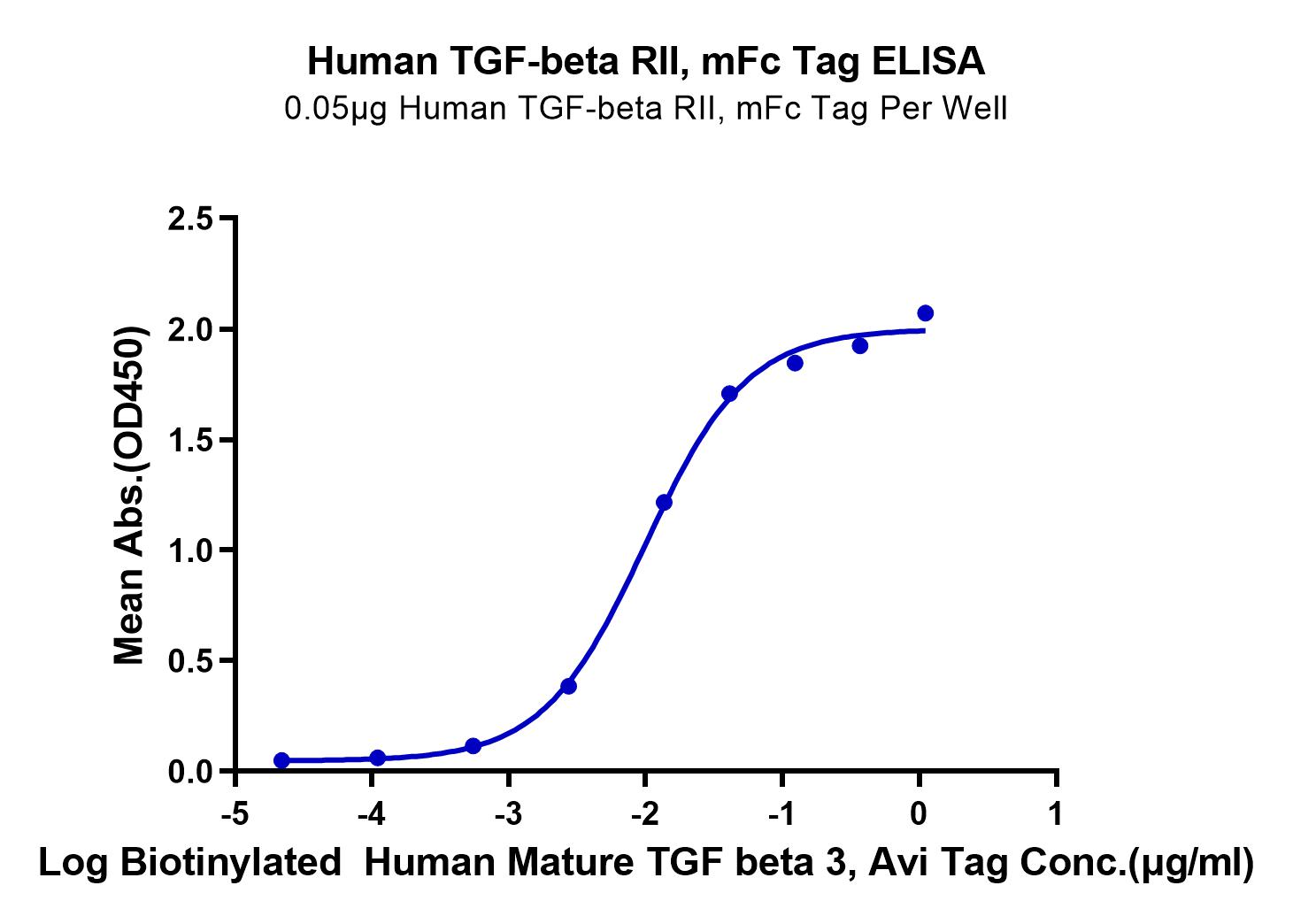|
| Human TGF-beta RII/TGFBR2 Protein (LTP10692) |
|
| LTP10692 |
|
| 100ug |
|
|
$406 In stock |
| The TGFBR2 gene provides instructions for making a protein called transforming growth factor-beta (TGF-?) receptor type 2. This receptor transmits signals from the cell surface into the cell through a process called signal transduction. Through this type of signaling, the environment outside the cell affects activities inside the cell such as stimulation of cell growth and division. |
| Recombinant Human TGF-beta RII/TGFBR2 Protein is expressed from Expi293 with mFc (IgG1) tag and Avi tag at C-terminal. It contains Ile24-Asp159. |
|
| TGF-beta RII/TGFBR2 |
|
| Human |
|
| P37173-1 |
|
| Ile24-Asp159 |
|
| The protein has a predicted MW of 44 kDa. Due to glycosylation, the protein migrates to 55-70 kDa based on the Tris-Bis PAGE result. |
|
| Immobilized Human TGF-beta RII, mFc Tag at 0.5ug/ml (100ul/well) on the plate. Dose response curve for Biotinylated Human Mature TGF beta 3, Avi Tag with the EC50 of 9.9ng/ml determined by ELISA (QC Test). See testing image for detail. |
|
| C-mFc-Avi |
|
| Expi293 |
|
| > 95% as determined by Tris-Bis PAGE; > 95% as determined by HPLC |
|
| Less than 1EU per ug by the LAL method. |
|
| Lyophilized from 0.22 um filtered solution in PBS (pH 7.4). Normally 5% trehalose is added as a protectant before lyophilization. |
|
| Reconstituted protein stable at -80 C for 12 months, 4 C for 1 week. Use a manual defrost freezer and avoid repeated freeze-thaw cycles. |
|
| Shipped at ambient temperature. |
|
| Centrifuge tubes before opening. Reconstituting to a concentration of more than 100 ug/ml is recommended. Dissolve the lyophilized protein in distilled water. |
|
|  |